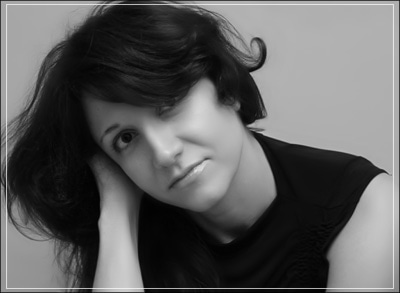Contributor Spotlight: Kristina Gorcheva-Newberry
Kristina Gorcheva-Newberry’s story “And What Rough Beast” is part of Issue 76 of Bellingham Review. Subscribe or purchase a single issue through our Submittable page here.
What would you like to share with our readers about the work you contributed to the Bellingham Review?
“And What Rough Beast” is a spooky riddle, inspired by Ted Koozer’s poem “Abandoned Farmhouse.” In the second half of the story, there’s a direct allusion to the poem: “Something went wrong.” In Koozer’s poem, however, we don’t know who the speaker is or what really happened to the couple and their child, so I had all the freedom to explore the themes of love, family, parenthood, and domestic violence. And, of course, one of the characters is a poetess, who’s trying to write a sestina about the tragedy that happened a long time ago. She’s also personally connected to the place. Just like Koozer, I used alliteration and repeated personification to recreate an eerie, mysterious atmosphere of the original poem. Language is crucial to the story. I wrote the entire piece fairly quickly, but kept honing the sentences for months, striving for a certain poetic cadence. I couldn’t decide on the title either, until I stumbled upon the last two lines of W.B.Yeats’ poem “The Second Coming.” The song at the beginning of the story is a Russian folk tune my mother and grandmother used to sing when I was growing up.
Tell us about your writing life.
A Russian-Armenian emigre, I write a lot about my experiences as a teenager in the U.S.S.R., the perestroika years, and the collapse of the Soviet Empire. Recently, I’ve also started researching and writing about the Armenian Genocide, rediscovering my roots and reconnecting with that side of my cultural heritage.
All my stories begin with a “feeling” (as primitive or vague as that sounds). I cannot quite explain it or express it other than through a narrative act. In a way, it is as if I must build a house, erect some kind of structure to contain that particular feeling, which is like the soul of the story. The characters, the setting, the plot, all grow from that feeling and inhabit that space. Both as a reader and a fiction writer, I’m drawn to stories about “loss.” The “loss” isn’t always physical—that of a relative or a dear friend—but also the loss of love, dreams, innocence, identity. After reading such stories, something in the room changes forever, and I can no longer recognize or accept its habitual order. The more I craft my own fiction, the more I become aware of how difficult it is to evoke powerful emotions without being overtly sentimental or maudlin, to render “loss”—something you can’t see or touch—and make it palpable for the readers.
Which non-writing aspect(s) of your life most influences your writing?
Motherhood! My son is a pianist, classical and jazz. He’s a first-year student at Mannes School of Music in NYC. Albert performs, composes, and studies film. It is such an inspiration, as well as a privilege, to be able to share a creative space with him. Since he was a teenager, we’ve always held extensive, exhausting conversations about art, why we pursue it, and what it means to be an artist in a world where crimes against humanity still take place every day.
What writing advice has stayed with you?
A few summers ago, I received a scholarship to the Sewanee Writers’ Conference, where I was fortunate to work with Richard Bausch. And while he exploded with jokes and craft lectures, he gave one particular bit of advice that I now pass on to other writers: “Always ask yourself what the story is about. And if you can’t answer, if there’s no ‘about,’ then there’s no story.”
What is your favorite book (or essay, poem, short story)? Favorite writer(s)?
I favor galaxies of books and writers. Two I revere: Alice Munro and Toni Morrison.
What are you reading right now?
The Girl on the Fridge (stories) by Etgar Keret.
Virginia Woolf, Virginia Woolf, Virginia Woolf.
What project(s) are you working on now, or next?
I’m currently revising my latest novel, SPUTNIK HOTEL.
Anything else our readers might want to know about you?
I can cook the best borsch and cabbage pierogi in all of Brooklyn! Come on over!
Where can our readers connect with you online?
A Russian-Armenian émigré, KRISTINA GORCHEVA-NEWBERRY holds an M.F.A. in Creative Writing from Hollins University. She has published thirty stories, some essays, and poetry. Her work has appeared in Prairie Schooner, Bayou, The Southern Review, Rosebud, The Southwest Review, Nimrod, Arts & Letters, The Louisville Review, Confrontation, and elsewhere. Her short fiction was selected as a finalist for multiple awards, including five Pushcart Prizes. Kristina is the winner of the 2013 Katherine Anne Porter Prize for Fiction, first prize. She was a Tennessee Williams scholar at the 2015 Sewanee Writers’ Conference, and her debut novel, Not to Be Reproduced, was shortlisted for the 2016 Dundee International Book Prize.
Featured Image: “Untitled” by Richard Turenne
